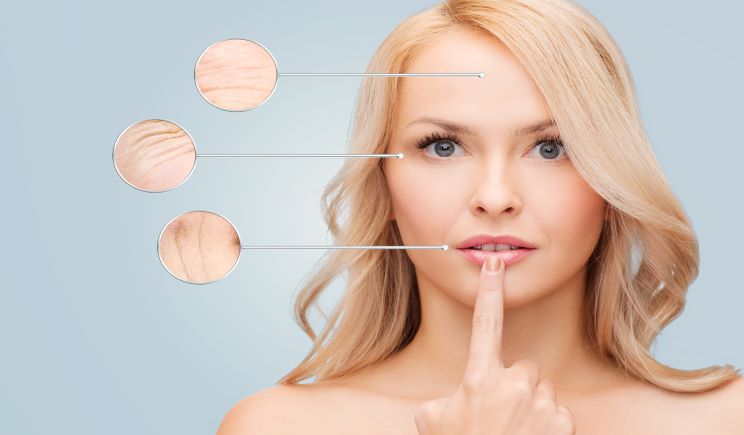Nowadays, people talk a lot about copper peptides as a beauty trend. But what are these peptides, and how do they work?
People gradually lose collagen and elastin needed to keep the skin smooth and firm in a normal aging process. In addition, some habits, including smoking and overexposure to the sun, may speed up the loss of these proteins.
Luckily, numerous skin products can help restore your skin’s collagen and elastin. That’s where copper peptides come into play. They may promote more collagen production in your skin, dealing with concerns like age spots, fine lines, and enlarged pores. In addition, copper peptides may be beneficial to hair, reducing breakage and stimulating overall hair growth.
However, it is worth mentioning that nowadays, no beauty product can fully replenish collagen, elastin, and other connective tissue components that have been lost.
Copper peptides for skin
Copper peptides can work below the epidermis (outer layer of skin) and help generate elastin and collagen deep within the skin. As a result, copper peptides have a number of benefits for the skin, including reducing the appearance of wrinkles, making the skin firmer and its tone even, and having an antioxidant effect.
Copper peptides for wrinkle reduction
This property appears since copper peptides promote collagen production. Over time, collagen may help “plump up” your skin, reducing lines and wrinkles.
Copper peptides and firmer skin
Copper peptides boost collagen and elastin synthesis. As a result, it may help the skin become firmer and smoother because produced proteins are responsible for these characteristics.
Copper peptides even skin tone
Copper peptides differ from other peptides because they can potentially repair the skin and even out its tone.
Researchers believe that copper peptides can remove damaged connective tissues and add new ones simultaneously. It may result in reducing sunspots (or age spots), scars from acne, or other causes of uneven skin tone.
Antioxidant effect of copper peptides
Due to their antioxidant effect, copper peptides may reduce skin inflammation and prevent further damage. Moreover, these compounds are reported to decrease the risk of infections.
Copper peptides and hair care
The ingredients in copper peptides may promote the overall health of your hair by increasing skin blood circulation, maintaining hair color, etc.
Copper peptides and blood flow
Some researchers think that copper peptides can help increase skin blood circulation. Moreover, copper itself is believed to help maintain blood vessel tissues. As a result, copper peptides might stimulate hair follicles, giving them the oxygen and nutrients they need to grow new hair.
Copper peptides for maintaining hair color
Melanin is a compound responsible for the color of hair, eyes, and skin. Copper is one of the micronutrients necessary for the production of melanin.
Other hair benefits of copper peptides
According to some studies, copper peptides may prolong the time before the hair falls out. These compounds can extend the hair growth cycle that may be shortened by different factors, including issues with hair follicles, hormones, etc.
In addition, copper peptides may thicken existing hair by enlarging hair follicles. Still, more studies in humans are required to determine whether copper peptides provide these benefits.
How you can use copper peptides
Copper peptides come in the form of serums and facial moisturizers. It is not recommended to use a peptide-containing cleanser because, after use, you will wash away any effects.
Copper peptide serum benefits
You can benefit from copper peptides using them in the form of serum. To use the product for hair growth:
- Take several drops of the serum and apply them to your scalp.
- Gently massage the serum into the scalp.
- Do not rinse it off.
Make copper peptides serum a part of your skincare routine to address skin concerns. Apply the products in the following order:
- cleanser
- toner
- serum that contains copper peptides
- sunscreen (in the morning)
- cream or moisturizer (in the morning, afternoon, or evening)
Copper peptides moisturizer
Some facial moisturizers contain copper peptides. Use cream for dry skin and a lotion for normal or oily skin for best results. Apply the product twice a day, morning and night, gently massaging upwards.
Copper peptides: limitations and drawbacks
In general, more human clinical trials are needed to verify the effectiveness of copper peptides.
Notably, some ingredients found in other skincare products could interfere with the effectiveness of copper peptides. Therefore, using copper peptides simultaneously with retinol, alpha hydroxy acids (AHA), and vitamin C is not recommended.
Risks and side effects of copper peptides
Cosmetics containing these peptides usually do not pose any significant health risks. Nevertheless, copper peptide-containing products may cause some side effects. Therefore, testing any new skincare product is essential before widespread use on your face or scalp. Test the product by putting a small amount on the inside of your elbow and waiting 24 hours. In case of any signs of an allergic reaction, stop using the product. Concerning symptoms may include redness, itchiness, hives, and burns.
Another possible risk is copper toxicity. However, over-the-counter skin care products are unlikely to cause such reactions. Usually, the product will likely contain a combination of other ingredients besides copper peptides.
You can learn more about the different types of peptides and their functions by Click Here.














Leave a Reply
You must be logged in to post a comment.